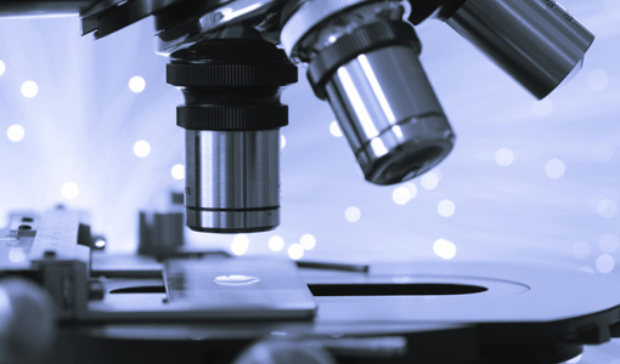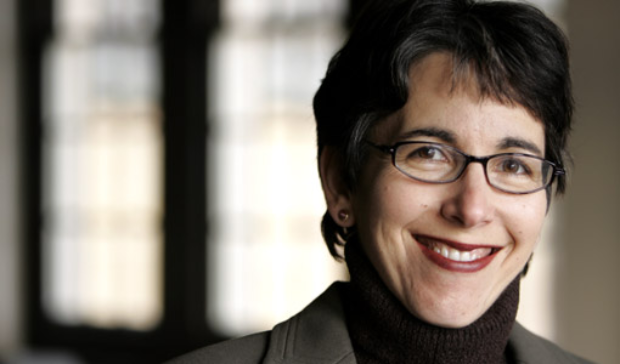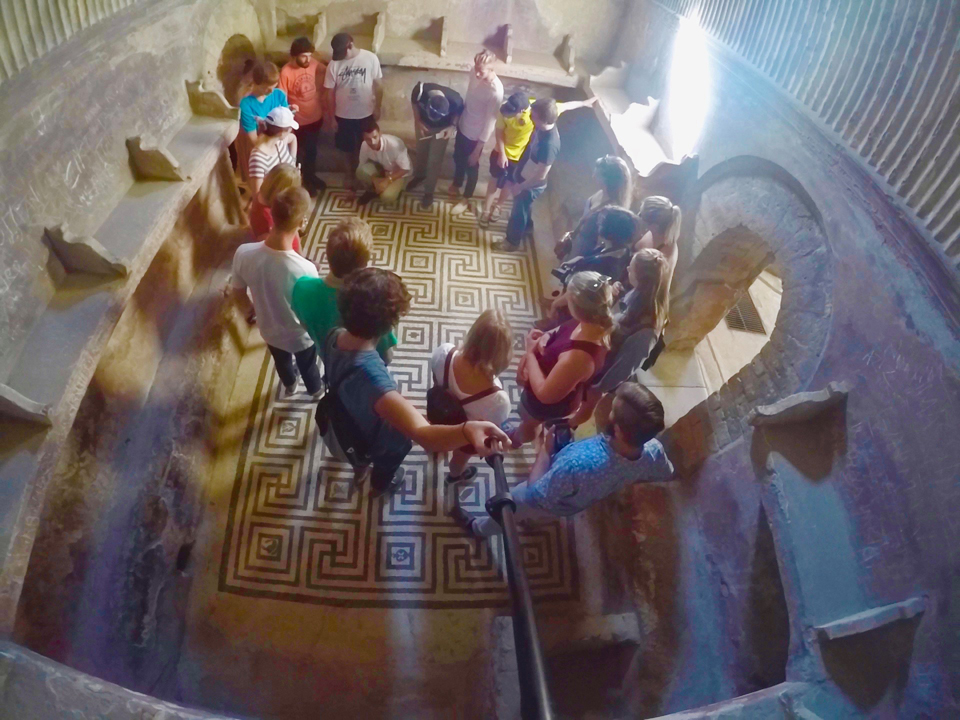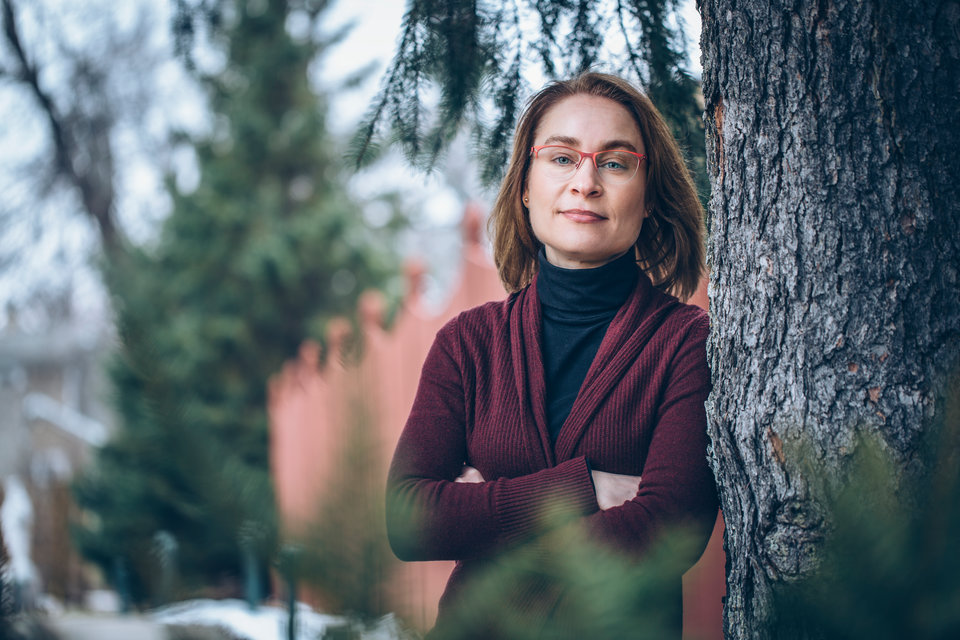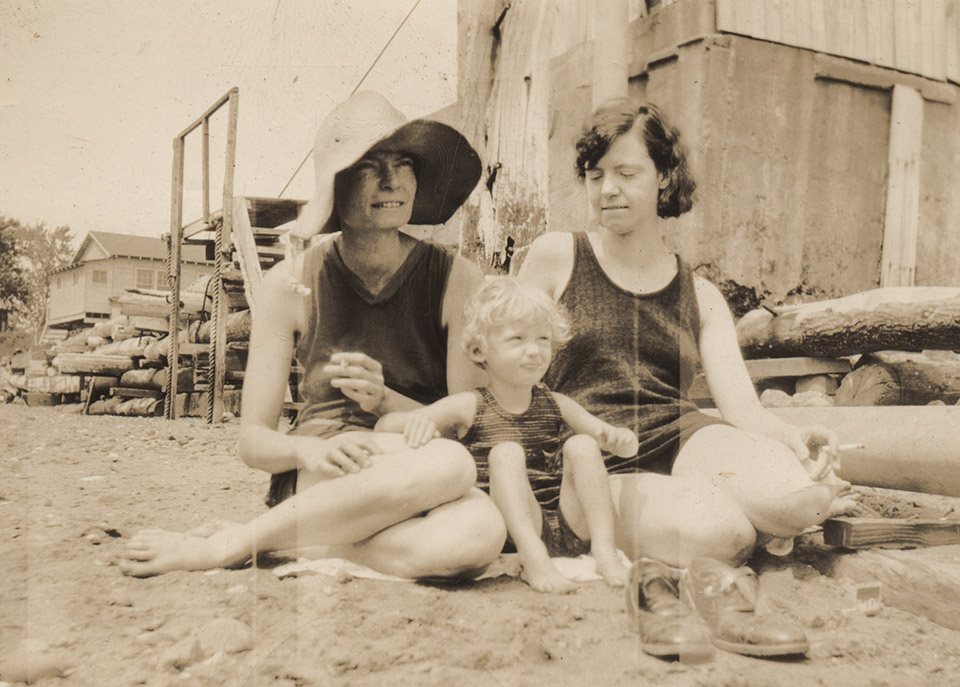Biology is the study of life and here we peek into the lives of four alumni who majored in biology. We profile a corn pests entomologist, a genetic counselor, a laboratory equipment salesman and a regulatory affairs specialist.
Aaron Gassmann ’97 – corn pests entomologist
Each summer Midwesterners look forward to peeling back the green slender husks of fresh sweet corn to reveal an unblemished surface of yellow kernels. It isn’t by accident that the corn is so healthy. You might think that pesticides are the reason, and sometimes they are, but researchers like Aaron Gassmann are finding ways to preserve environmentally friendly crop varieties that rely on fewer pesticides.
Gassmann, an assistant professor in the Entomology Department at Iowa State University, researches transgenic crops, that is, plants that contain genes which have been artificially inserted. For example, transgenic corn contains genes originally found in bacteria, which makes the corn immune to some key insect pests.
“I study how we can prevent insect pests from becoming resistant to transgenic crops.These crops have revolutionized agriculture by reducing the amount of pesticides going into the earth, diminishing the exposure of farmers to harmful chemicals and decreasing the amount of work a farmer has to do,” Gassmann said.
Once a St. Thomas student who conducted research with Dr. Chester Wilson on the Northern Corn Root Worm, Gassmann now helps other university students develop their own master’s and Ph.D. research projects. “I like being presented with a problem and coming up with a road map on how it will be solved,” he said.
MaryAnn (Von Eschen) Fox ’88 – genetic counselor
It is devastating news when a couple finds out that their child will be born with a birth defect. That’s why MaryAnn Fox is there to help them.
“Dealing with a first diagnosis is always heartbreaking for the family,” said Fox, a genetic counselor since 1998 with United Hospital and Children’s Hospital and Clinics in St. Paul. “It’s still a loss for the family. It’s not what they were expecting.
“Families who find out a diagnosis before birth tend to be much better prepared after delivery than those who find out at birth,” Fox said. “The family has had the time to grieve for the baby they had been expecting and prepare for the baby they are expecting. Early diagnosis can lead to better care for the newborn.”
Through her guidance, Children’s Hospital started working with the Minnesota Department of Health to screen newborns for cystic fibrosis in 2006. The earlier that babies are diagnosed and treated, the better their prognosis.
Recently, Fox shared her expertise with St. Thomas freshmen. “As an undergrad, my fascination for genetics grew when I took Dr. Nancy Hartung’s genetics course,” she said. She visited Hartung’s seminar class on aging to talk about the predisposition of certain conditions, like heart disease.
Jim Jagodzinski ’53 – laboratory equipment salesman
As a St. Thomas undergraduate in the early ’50s, Jim Jagodzinski worked as a Biology Department lab assistant and in the “animal room” where rats, hamsters and frogs were kept. He was a biology major working under the guidance of professor John Giesen. Jagodzinski didn’t want to become a doctor, dentist or teacher, which were the main choices for biologists back then.
He found a career that he enjoyed, in sales, and spent the next 42 years selling laboratory equipment such as centrifuges, balances, spectrophotometers and microscopes to hospitals, industrial companies and universities. In 1969, he started his own company, North Central Instruments Inc., specializing in optics.
“I’ve met scientists and researchers from around the world,” he said. “The equipment and projects sometimes were complicated and required consultation.”
Helping his customers solve problems energized him. He helped 3M to make smoother magnetic film for television recordings, thus eliminating electronic interference.
When he retired, he sold the company to his 15 employees. “They’re doing great and they just got an order from St. Thomas not too long ago,” he smiled. “Every salesperson I hired and that the company still hires is a biologist. Biologists are bright people who are interested in science and that’s a requirement for consultative selling in technical fields.”
Maureen McDonnell ’93 – regulatory affairs specialist
Before college, Maureen McDonnell pictured herself treating the ailments of people’s pets as a veterinarian. But after doing research with Dr. Jennifer Cruise at St. Thomas to study rat liver cells and how they grow, her career aspirations shifted and she decided to go into research.
“The discovery process is exciting to me,” McDonnell said. “You don’t know what the answer will be when you start out in your research.”
Today McDonnell is a regulatory affairs specialist at Beckman Coulter, a biomedical-testing instruments manufacturer in Chaska, Minn.
“As people visit the doctor, they rely on their doctor’s diagnosis,” McDonnell explained. “That diagnosis is based on a panel of tests. Beckman Coulter sells instruments that do all kinds of tests.”
For example, its laboratory kits can test for different diseases, such as indicators of cancer or measurements of heart disease.
McDonnell works with the U.S. Food and Drug Administration, Health Canada, and the ministries of health in other countries to ensure that Beckman Coulter’s products are compliant with their regulations.
“As you work on any kit, you know that you or people you care about could be affected by this process when they go to the doctor. You want to make sure the product is going to work,” McDonnell said.
